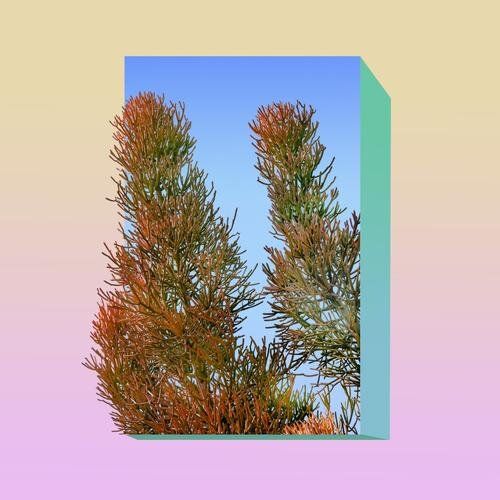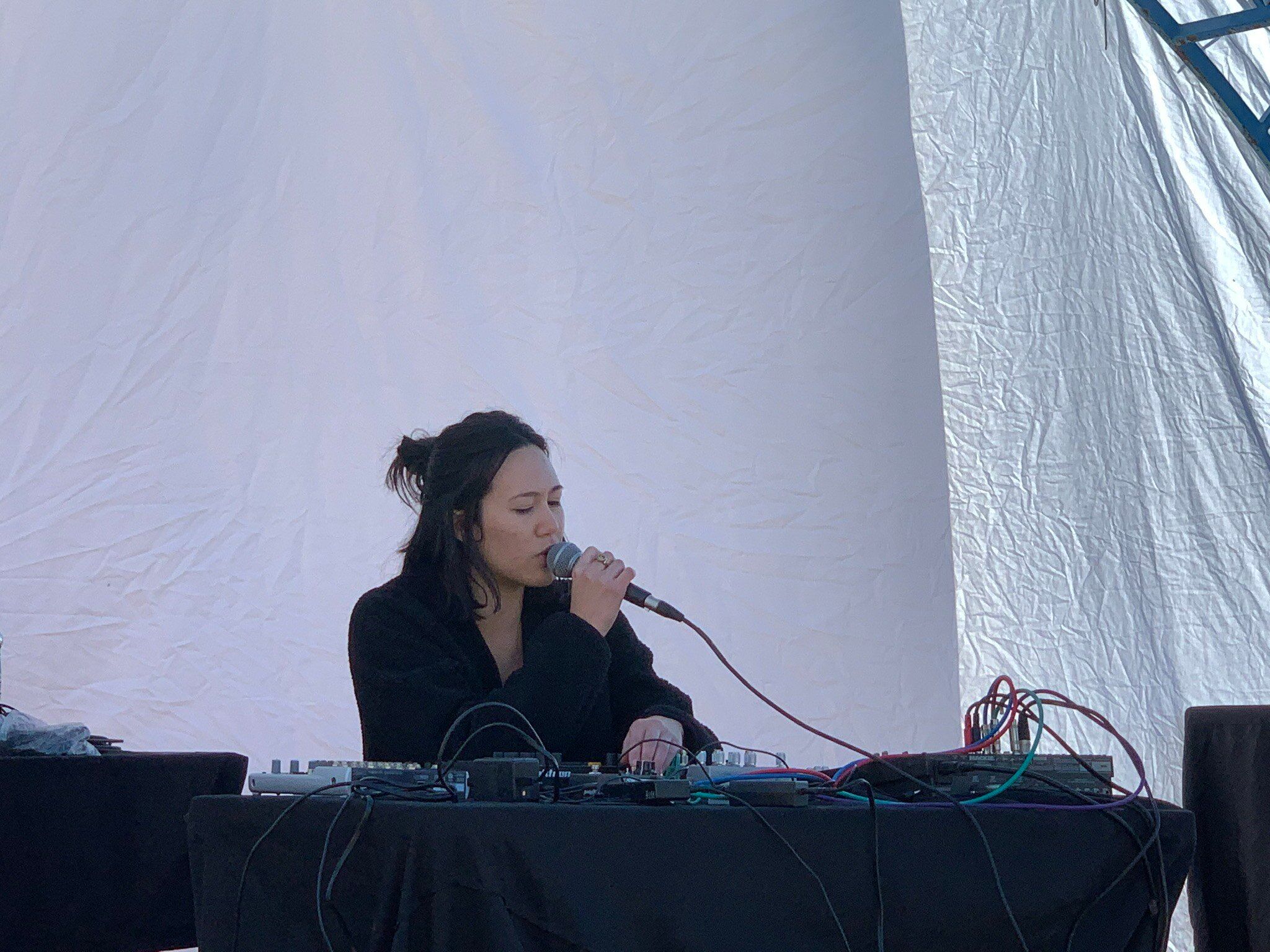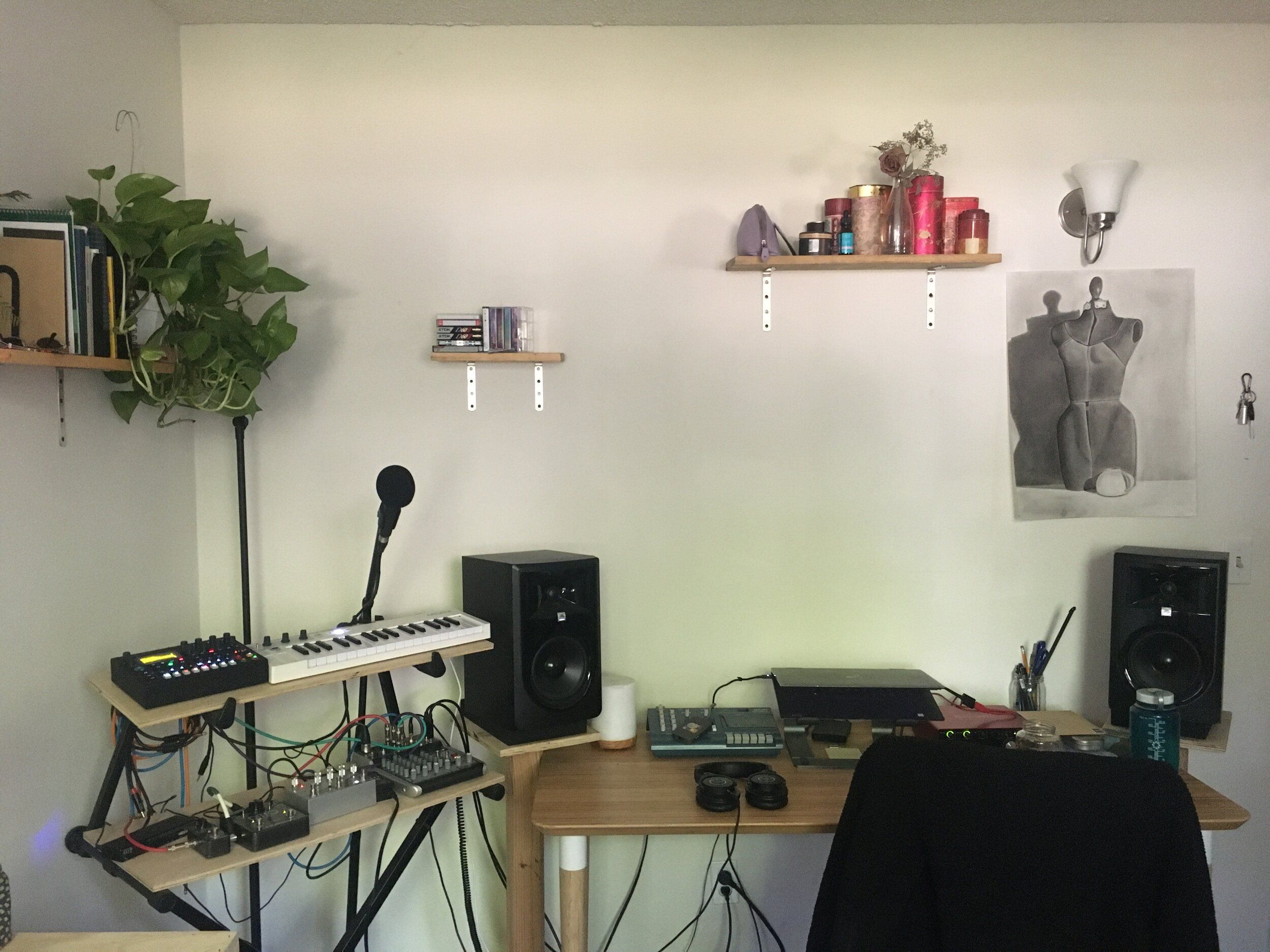
No Translation
From California to Taiwan to Montreal to Cologne and many places in between and back again, Emma Palm (aka No Translation) weaves voice, field recordings, synthesizers, and atmospherics into sonic collages that explore the world not with intention but rather with curiosity, wonder, and a search for beauty in the unknown spaces of the world.
As a sound explorer and ESL teacher, Emma converses and helps many who have newly immigrated to the US, in addition to her ongoing dialogue and creative exchanges throughout the world. This interview took place on a sunny day in California and a rainy day in Taiwan this past May.
Ryan: So you taught English to Taiwanese remotely?
Emma: Yeah, I did it online. I would do Skype calls. It was with a Taiwanese company, and I would talk mostly to adults who wanted to improve their conversational or business English. It was good for me at the time because I was traveling a lot and that was a way that I could work.
R: Taiwanese are just genuinely nice people. It was hopefully a lot of fun.
E: Definitely. I’m actually half Taiwanese, so it’s really comfortable for me to be able to talk to people there.
R: Have you visited Taiwan? Have you been before?
E: Yeah, my mom, all of her family lives in Taipei, so since I was a baby I would go visit during the summers. My grandmother and my aunt own a tea shop there, and I spent a lot of time growing up around there […] I lived in Taiwan for a year a couple years ago actually. In Taitung. In the rural areas.
R: You know Taiwan better than I do, and I live here [laughter]. The ongoing conversation my wife and I had was I needed to live abroad in a place I’m not familiar with to gain a different perspective on things.
E: It’s a totally different experience when you’re outside of your ‘normal habitat’.
R: Exactly, it kind of puts you in a different state of mind, and then you’re a bit more receptive to things you might not have been aware of. I love your artwork, by the way. I’m a fan. Did you go to art school? Is this something you’ve always done? You obviously have a voice that I hear through your music, but then you have the visual work that has a strong identity to it as well. Where is this coming from?
E: Thank you so much. No, I don’t have any formal artistic training. As far as music, yeah, I did grow up taking piano lessons. I was actually really bad at them [laughter] I guess without really knowing what I was doing growing up at home, I would compose things. I would just make things. When I was in college, I actually studied Sociology and teaching English as a second language because I am really interested in different cultures, and I love traveling. That was a way for me to do that. I actually didn’t make music for a while. Like make my own music. Because it didn’t click in my head that, even though I really appreciated art and music very deeply, I just didn’t think that I could do it myself.

R: It’s that process of discovery.
E: Yeah, it just never clicked with me that I could do the things I liked.
[laughter]
R: Right. [in adult voice] ‘Ignore the things you find fulfilling.’
E: Yeah, it takes a while to unlearn that.
R: So what clicked? Was it the environment…being in LA? Was it going to shows? How did you discover this was something you wanted to do in an active way?
E: After I graduated, I got accepted to do a Fulbright grant to teach English in Taiwan. That’s how I got to live there for a year. I was thinking at the time, ‘Oh, I am going to each English in different countries.” That was what I wanted to do. I really wanted to explore more. But during that time, I realized I just didn’t like it at all. And then halfway through that experience of thinking of quitting but deciding to stay, I got into a major scooter accident and almost died. I had to get surgery. I was on crutches for a couple of months. It was unfortunate but during that time I couldn’t do anything, especially physically, it was basically being in quarantine, and I had a ukulele with me as a small thing that I had. I was just playing, and I realized how much I wanted to keep making music. Something I wanted to do and have in my life...
In Montreal, I had more time to learn how to make music on my own. It took a lot of experimenting, and I didn’t really feel comfortable playing shows at that time, but I would spend a lot of time on my own creating stuff, experimenting with different sounds, and trying different things.
R: Seeing some of your outdoor performances, it feels like there’s a strong sense of community around you. A group of people who are in your orbit who are contributing in different ways. Like Marc Merza who played clarinet with you. How did you go from getting back to California after seeing so many things to playing next to a river with what looks to be a really powerful collaborative partner?
E: That was actually a new friend who I had just met not that long ago. Everyone now is like a new friend since coming back. There were 3 years of me not living around California. So it’s been really interesting; a really good experience after being gone for so long and coming back, and now that I know what I want to do, there’s been more opportunities to make those connections.

R: I was listening to your EP, Communion, before our call. Some people's work evoke spaces. Others imply context. Your music strikes me as almost like a state of consciousness.
E: I’m often thinking about memories, and how memories are very… [long pause] they’re interesting because I find myself thinking about different things in the past in so many different contexts. So when I feel like I’m making music, it’s like recreating a new context or world for them. Combining the real things and the unreal things together, in a sense.
I can explain why it’s named Communion. Because the first track, the sample of the voice is from a past lover. So I was thinking about being with another person. The second track is my voice; almost communion with yourself. Being with yourself. And the last track was with a really close friend after we hadn’t seen each other in a really long time. I happened to have some recordings from that and so that was communion with someone you’re really close to.
I think for a long time, I had the different things that I had done and what I wanted to do very separated… I realized how much my previous experiences, even though it doesn’t seem that related to what I’m doing now, it informs what I think and what I notice for sure. For example, when I traveled abroad, when I taught different people, and talked to so many people from different cultures and languages, and when I was learning about Sociology, and just how society works and forms and who people are, that’s something I really notice sound wise now. I think that’s something that really stands out to me, and I want to incorporate more. I think my previous work has been more related to me in a personal way. I use sounds that are very personal to me. But now I want to explore more sounds from different places, different cultures, different people, and I want to incorporate that not just as music but as sound art.

When I was doing more of teaching English, what I liked about that is that I always got to know a person in a deeper way. It was always amazing to me that no matter where you’re from, there’s almost always something that you can connect on. I mean, we’re all humans. We all have the same functions and needs. When I was in school, I studied a lot of linguistics, I gained an appreciation for languages after analyzing the sounds and training people how to pronounce things. Noticing the different sounds that people make or use, or the things that they say in different situations. How in certain languages there are words for things that there is just not a word for in English that you just can’t describe something in the same way. I find that as a beautiful thing that language especially shapes the way that people think about things. So when you talk to people from different places, they all have different ways of thinking about things. For me, it broadens my way of thinking.